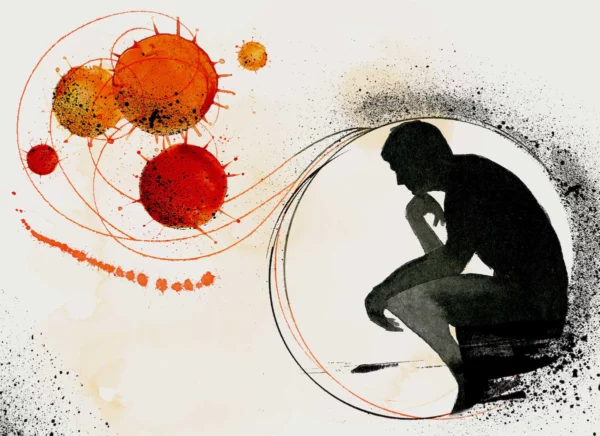
How and Why Burnout Pushes People Toward Addictive Behaviors

Burnout can leave people feeling drained, overwhelmed, and stuck in a cycle of exhaustion. When life’s pressures become unbearable, people often seek ways to escape the strain. Burnout pushes people toward addictive behaviors as a way to cope with the emotional toll. From substances to habits that offer temporary relief, these behaviors can seem like an easy solution but lead to dangerous patterns. In truth, burnout doesn’t just affect the body; it rewires the mind, making addictive tendencies more likely. In contrast, the temporary relief often spirals into long-term dependence. Recognizing this link is vital to preventing burnout from becoming a path to addiction, and learning healthier coping methods can break the cycle before it worsens.
Understanding the Link Between Burnout and Addiction
Burnout is a state of emotional, physical, and mental exhaustion caused by prolonged stress. It often results from overwhelming workloads, constant pressure, or the feeling of being unable to meet expectations. Emotional exhaustion, one of the key symptoms of burnout, can push people to find ways to escape the weight of their responsibilities.
As an illustration, stress and addiction are linked when people seek out quick solutions like alcohol or drugs to cope. The initial relief these substances provide can feel like a way to manage burnout, but it only masks the deeper issue. Over time, these unhealthy coping mechanisms can spiral into addiction, as burnout lowers the ability to manage stress in healthier ways.
How Chronic Stress Lowers Resilience Against Addictive Behaviors
Chronic stress heavily affects the brain, weakening its natural defenses against temptation. Over time, the constant pressure reduces the brain’s ability to resist unhealthy coping mechanisms. With this in mind, burnout drains the mental energy needed for self-control, leaving people more prone to impulsive decisions. The prolonged strain lowers willpower, making it harder to resist addictive behaviors.
Emotionally, burnout creates a vulnerable state where people seek out anything that offers relief, even if it’s harmful. The feeling of being overwhelmed pushes people to find quick fixes, and in contrast, they often turn to substances or habits that provide temporary comfort. Unfortunately, this vulnerability makes addiction a much more likely outcome.
The Role of Dopamine: Why People Turn to Substance Abuse
Dopamine plays a central role in the brain’s pleasure and reward system, making us feel good when we engage in activities we enjoy. In like manner, burnout can reduce the brain’s natural dopamine production, leading to a lack of motivation and overall dissatisfaction. This drop in dopamine makes it harder to experience joy from everyday activities, pushing people to seek something that will quickly boost those levels.
Besides, substances like alcohol or drugs provide temporary relief from burnout by artificially raising dopamine levels, giving a brief sense of pleasure. Unfortunately, this quick fix can lead to dependence as the brain starts relying on these substances to feel normal rather than producing dopamine naturally.
Why Early Intervention Is Key in Preventing Addiction Due to Burnout
Recognizing burnout symptoms on time is critical in preventing addiction from becoming a coping mechanism. When people identify the signs of emotional exhaustion, they can take action before the problem worsens. In truth, seeking professional help and an adequate treatment program can stop the development of addictive behaviors caused by burnout. By addressing stress early on, people can avoid relying on substances to escape their struggles.
Effective strategies for managing burnout include regular exercise, mindfulness practices, and establishing healthy work-life boundaries. These methods help people cope with stress in healthier ways, reducing the risk of addiction. In short, early intervention can break the cycle where burnout pushes people toward addictive behaviors, helping individuals regain control before it spirals.
People are Likely to Run Toward Unhealthy Escapes
When burnout becomes overwhelming, people often seek an escape from the constant pressure and exhaustion. Addictive behaviors offer a way to temporarily disconnect from reality and dull the emotional pain that burnout creates. Alcohol, drugs, and gambling are common substances and activities people turn to for relief, providing a short-lived break from stress.
In contrast, these unhealthy escapes don’t address the root of the problem, only masking the feelings of burnout. The temporary relief can quickly become a habit as people seek out these behaviors more frequently. The cycle of using substances or risky activities as a coping mechanism can lead to a dangerous path of dependence and addiction.
Burnout Pushes People Toward Addictive Behaviors and is Connected with Workplace Stress
In contrast to personal life stress, workplace pressures can be a significant factor contributing to burnout and addiction. High workloads, long hours, and constant pressure to perform can wear people down over time, leading them to seek unhealthy coping mechanisms. A study by Flair says that almost 60% of work absences are due to psychological stress. Around 26% of employees have reduced motivation and energy for the same reason. Burnout is especially common in healthcare, finance, and education industries, where stress is part of the job.
Then again, people in these high-stress professions are more vulnerable to turning to substances for temporary relief. The pressure to maintain a high level of performance leaves little room for self-care, making addiction a tempting escape from the mental strain. Unfortunately, workplace stress often goes unnoticed as a catalyst for addiction, creating hidden risks for those affected.

Conclusion
Burnout pushes people toward addictive behaviors when stress and exhaustion become unbearable. The emotional and mental toll of burnout often leads individuals to seek quick fixes, making them more vulnerable to addiction. Recognizing the link between burnout and addiction is key to preventing long-term consequences. Healthy coping strategies, professional help, and early intervention can make all the difference in avoiding this dangerous path. Understanding the risks and addressing them on time can help individuals regain control, preventing burnout from taking over their lives and pushing them toward destructive behaviors.











































